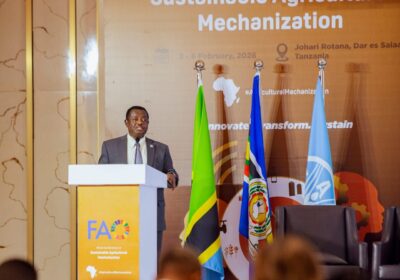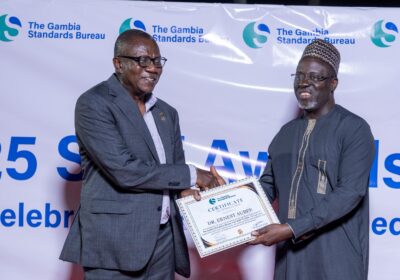EU Delegation to Nigeria and ECOWAS, GIZ Support Plateau’s Push to Become Nigeria’s New Agro–Powerhouse.
By Raymond Enoch
German Cooperation and the European Union Delegation to Nigeria and ECOWAS have thrown their weight behind Plateau State’s ambitious drive to become one of Nigeria’s leading agricultural powerhouses, with a major new support package targeting dairy, tomato and ginger value chains.
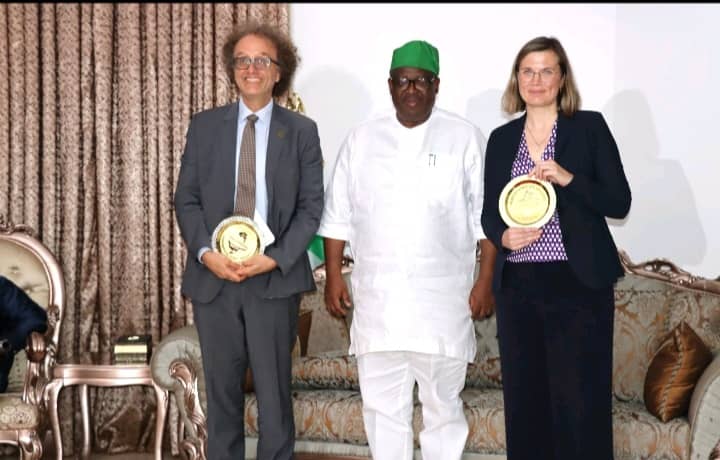
In Jos last week, a high-level German and EU-led delegation met with the Executive Governor of Plateau State, His Excellency Barr. Caleb Mutfwang, to discuss concrete steps for transforming the state’s agri-food systems and unlocking its vast rural economic potential.
The strategic briefing, held at Government House, served as a prelude to the regional launch in Jos of the EU Agricultural Value Chain Facility – Transformative Agricultural Systems for Rural Economic Development (EU VACE-TARED), a flagship programme designed to modernise agriculture, boost productivity and create jobs through value-chain improvements.
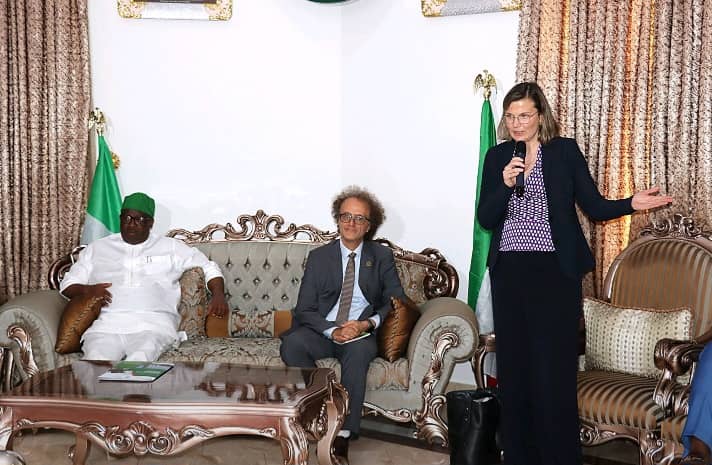
Governor Mutfwang, welcoming the delegation, hailed the partnership as a timely catalyst for inclusive growth and rural prosperity.
“I would like to thank the German Government through GIZ for the programme they will launch tomorrow, and I look forward to seeing how we can leverage the programme to bring prosperity to our own people,” he said.
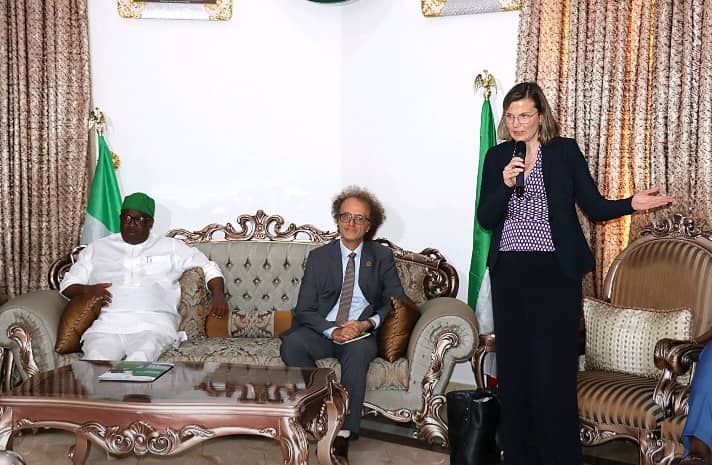
“As a government, we are poised to ensure that we unlock value in the agricultural value chains across various crops, particularly the dairy industry. We welcome this partnership, collaboration, and technical support,” the Governor added.
The visit brought together key Nigerian and international institutions signalling a coordinated push to reposition Plateau as a hub for climate-smart, private sector–driven agriculture.
The delegation was led by Mr. Massimo De Luca, Head of Cooperation for the Delegation of the European Union to Nigeria and ECOWAS; Dr. Andrea Rüdiger, Cluster Coordinator for the Transformation of Agri-food Systems; and Mr. Ayo Sotinrin, MBA (Oxon), Managing Director of the Bank of Agriculture (BoA).

They were joined by directors and senior representatives of the Federal Ministry of Agriculture and Food Security, the Federal Ministry of Livestock Development, the Federal Ministry of Budget and Economic Planning, and the National Agricultural Development Fund, underscoring strong federal ownership of the initiative.
Officials explained that Plateau State, with its favourable climate, fertile land and long tradition in crop and livestock production, is uniquely positioned to contribute more significantly to Nigeria’s GDP through agriculture. German Cooperation has already identified this potential and is currently implementing four projects aimed at unlocking the state’s agricultural capacity and creating decent jobs along the value chains.
At the heart of these efforts is the EU VACE-TARED project, commissioned by the German Federal Ministry for Economic Cooperation and Development (BMZ), co-financed by the European Union, and implemented by Deutsche Gesellschaft für Internationale Zusammenarbeit (GIZ) GmbH.
The facility will focus on strengthening the entire agricultural value chain — from production and processing to marketing and access to finance — with a view to improving food security, stimulating agribusiness investments and raising incomes for smallholder farmers, youth and women in rural communities.
For Plateau, the collaboration with GIZ, the EU and national partners signals a new chapter: one in which the state’s comparative advantage in dairy, tomato and ginger is deliberately harnessed to drive industrialisation, exports and broad-based prosperity.
With Jos now set to host the regional launch of the EU Agricultural Value Chain Facility, expectations are high that the renewed partnership will translate from pledges and policy dialogue into tangible projects across farms, processing centres and rural markets — and put Plateau State firmly on the map as Nigeria’s emerging agro–powerhouse.




